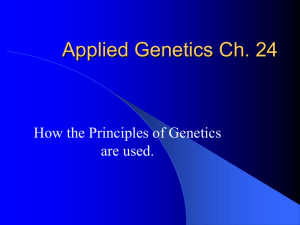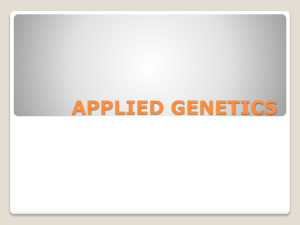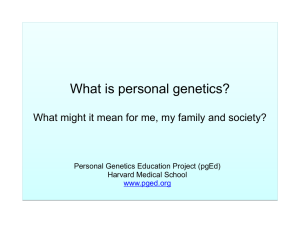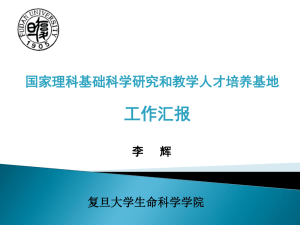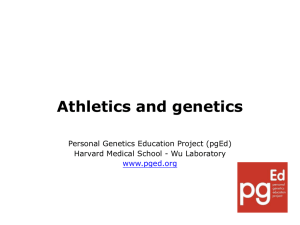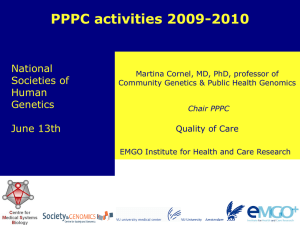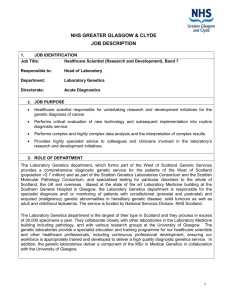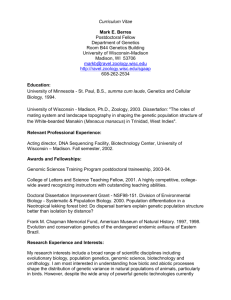Clinical Genetics
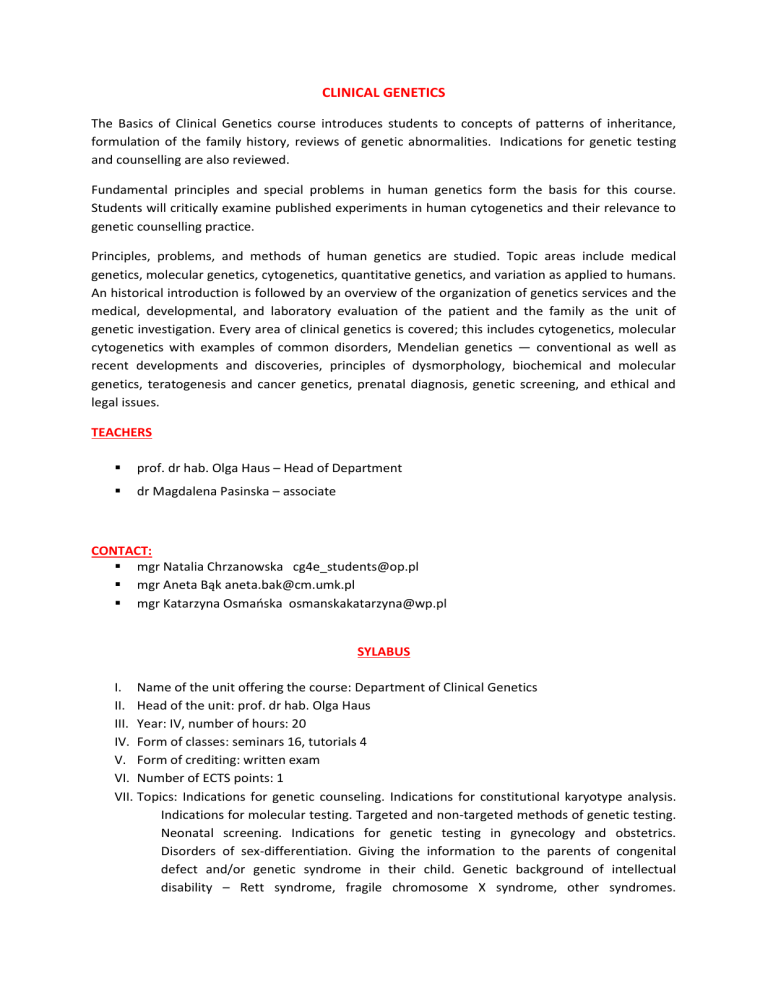
CLINICAL GENETICS
The Basics of Clinical Genetics course introduces students to concepts of patterns of inheritance, formulation of the family history, reviews of genetic abnormalities. Indications for genetic testing and counselling are also reviewed.
Fundamental principles and special problems in human genetics form the basis for this course.
Students will critically examine published experiments in human cytogenetics and their relevance to genetic counselling practice.
Principles, problems, and methods of human genetics are studied. Topic areas include medical genetics, molecular genetics, cytogenetics, quantitative genetics, and variation as applied to humans.
An historical introduction is followed by an overview of the organization of genetics services and the medical, developmental, and laboratory evaluation of the patient and the family as the unit of genetic investigation. Every area of clinical genetics is covered; this includes cytogenetics, molecular cytogenetics with examples of common disorders, Mendelian genetics — conventional as well as recent developments and discoveries, principles of dysmorphology, biochemical and molecular genetics, teratogenesis and cancer genetics, prenatal diagnosis, genetic screening, and ethical and legal issues.
TEACHERS
prof. dr hab. Olga Haus – Head of Department
dr Magdalena Pasinska – associate
CONTACT:
mgr Natalia Chrzanowska cg4e_students@op.pl
mgr Aneta Bąk aneta.bak@cm.umk.pl
mgr Katarzyna Osmańska osmanskakatarzyna@wp.pl
SYLABUS
I.
Name of the unit offering the course: Department of Clinical Genetics
II.
Head of the unit: prof. dr hab. Olga Haus
III.
Year: IV, number of hours: 20
IV.
Form of classes: seminars 16, tutorials 4
V.
Form of crediting: written exam
VI.
Number of ECTS points: 1
VII.
Topics: Indications for genetic counseling. Indications for constitutional karyotype analysis.
Indications for molecular testing. Targeted and non-targeted methods of genetic testing.
Neonatal screening. Indications for genetic testing in gynecology and obstetrics.
Disorders of sex-differentiation. Giving the information to the parents of congenital defect and/or genetic syndrome in their child. Genetic background of intellectual disability – Rett syndrome, fragile chromosome X syndrome, other syndromes.
Microdeletion syndromes. Computational analysis of phenotype. Non-Mendelian manifestation of monogenic diseases. „Imprinting pedigree”, „mitochondrial pedigree”.
Genetic-based neurodegenerative diseases: Alzheimer disease, Huntington disease, other diseases. Genetic counseling in late onset diseases. Genetic background of autism.
Hereditary cancer – genetic background, pedigree and clinical criteria, molecular testing, genetic counseling. Chromosomes instability syndromes. New diagnostic methods in clinical genetics. The role of genetic testing in oncology and hematooncology. Ethical and legal aspects of genetic testing and genetic counseling.
VIII.
Booklist:
Jorde LB, Carey JC, Bamshad MJ: Medical genetics. 4th edition, Elsevier, 2010.
Tobias ES, Connor M, Ferguson-Smith M: Essential medical genetics. Willey-Blackwell, 2011.
Strachan T, Read A: Human molecular genetics. 4th edition, Garland Science, 2011.
Korf BR, Irons MB: Human genetics and genomics. Willey-Blackwell, 2013.
RULES AND REGULATIONS
1. General rules:
seminars are obligatory,
students presence at seminars is registered,
the scope of knowledge required for each seminar is given on Department’s information board,
students are expected to read the appropriate passages from textbooks,
2. Form and conditions of course completion:
written test covering topics of seminars,
the test consists of 50 questions. In terms of passing the exam student has to obtain the score of at least 60%.
3. Criteria of the course completion:
participation in all seminars,
mastering the knowledge required for seminars,
mastering the knowledge included in indicated literature (list of recommended books is placed on the Department’s information board).
4. Criteria of justifying the absence:
every absence during seminars must be excused at the first seminar after an absence,
there is a possibility to comprehend the material discussed during missed seminar within the last week of academic term, but before the test.
5. The final exam:
the final test can take place only after the last seminar,
in case of failed test, second attempt can take place within the time dedicated for exam session, and its date must be accepted by the lecturer,
failure of the second attempt results in board exam,
unjustified absence during any test is regarded as a failed test.
6. Safety rules and regulations:
all students are obliged to know the safety rules and regulations,
the safety rules and regulations are enclosed in separate sheet,
all students are acquainted with the rules during their first seminar,
all students must sign a statement, that they are aware of all safety rules, regulations and procedures in case of fire and other dangers.
7. Miscellaneous:
each student is given one copy of these rules and regulations.
all students are asked to sign the consent of obeying the rules.
I, hereby confirm that I have been acquainted with Department’s of Clinical Genetics rules and regulation and have been informed that these rules are unquestionable.

